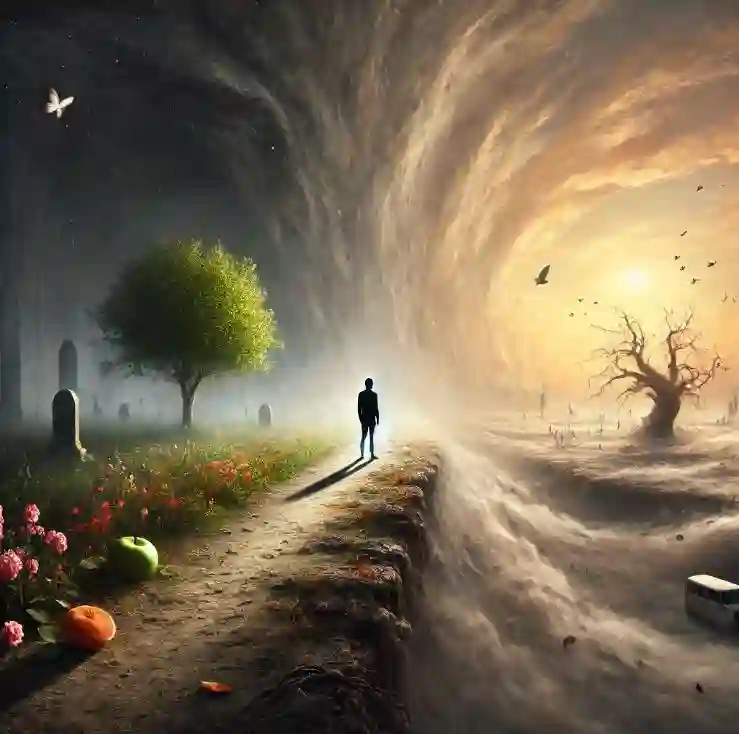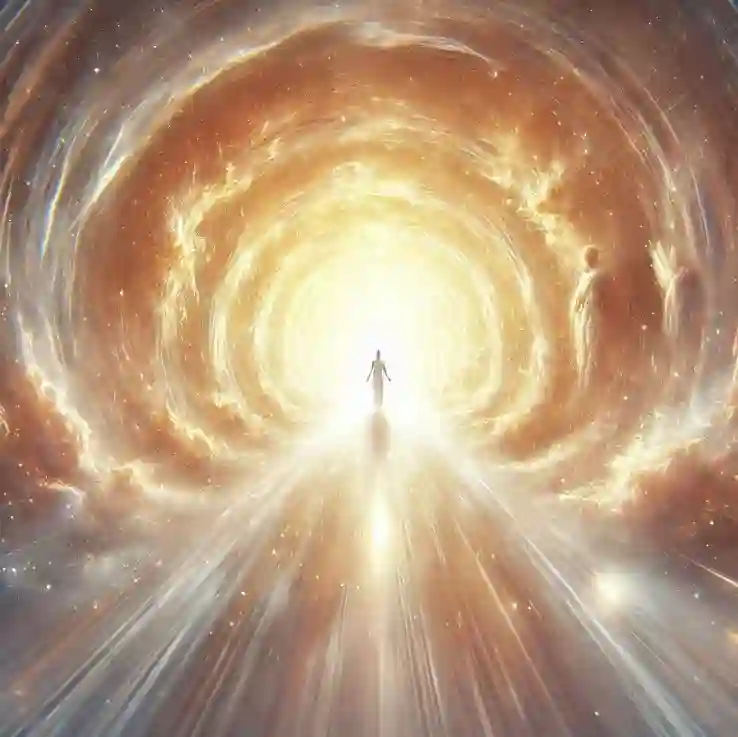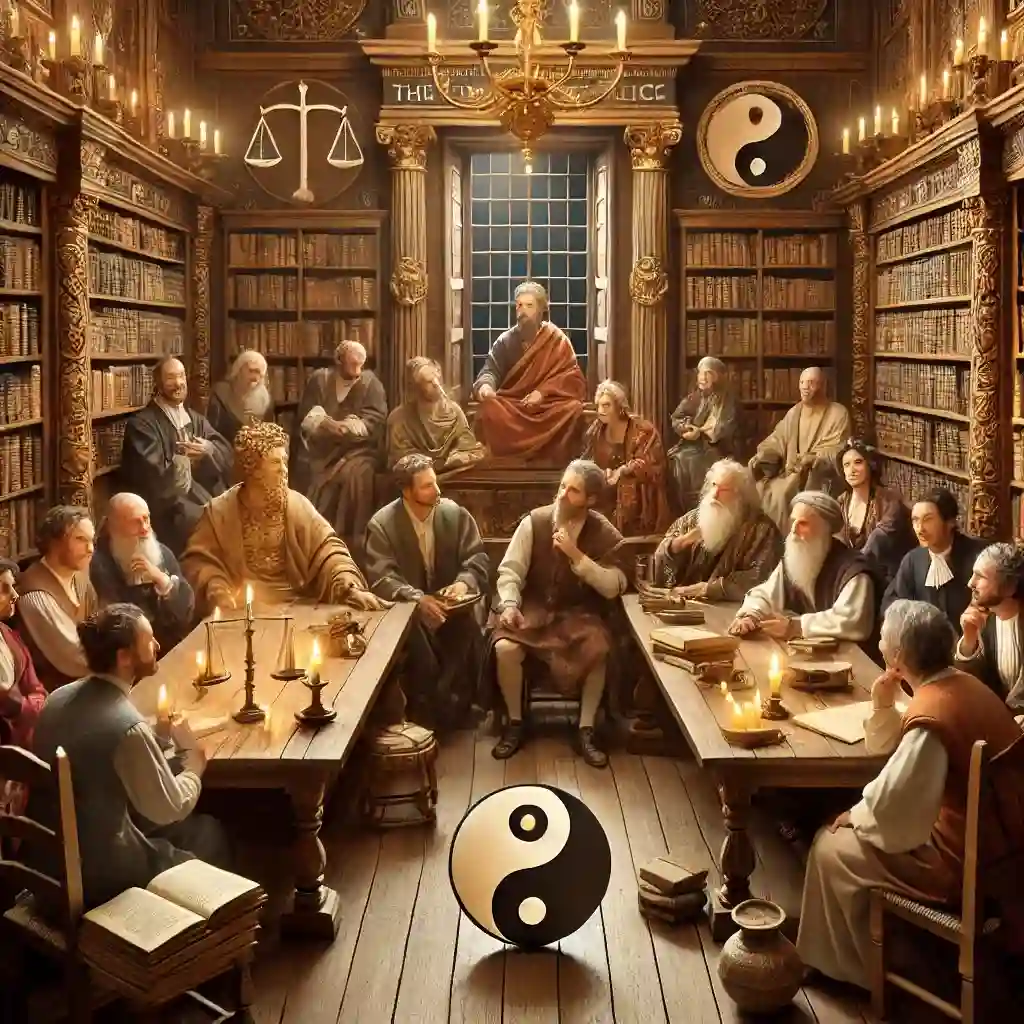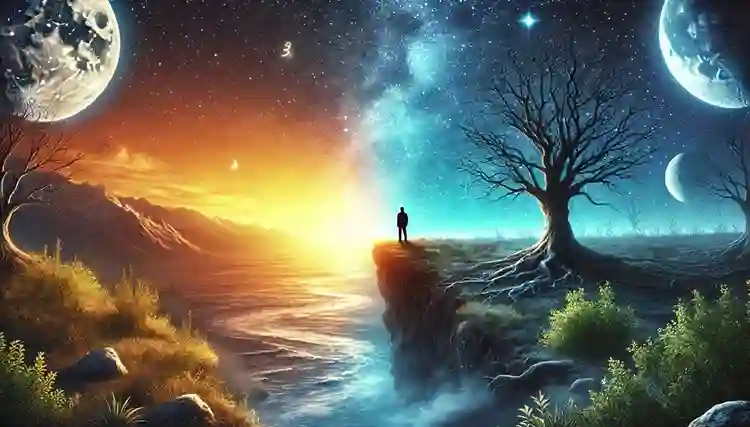The question “If there is nothing after death, what is the point of life?” has haunted humanity since time immemorial. From ancient philosophers to modern thinkers, this inquiry remains at the heart of our existential dilemma.
The concept of an afterlife or the lack thereof is not just a religious or spiritual matter; it extends to our deepest fears, hopes, and the meaning we assign to our mortal existence.
As we navigate through the possibilities, beliefs, and evidence, we attempt to find meaning in life, even in the shadow of death. This article delves into the perspectives, scientific views, and cultural interpretations that address this perennial question.

What We Know: The Certainties of Life and Death
Death is an undeniable certainty, the one universal experience that binds all living creatures. Biologically, death marks the cessation of all bodily functions—heartbeat, respiration, and brain activity. While the biological processes are well understood, the mystery begins when we consider what happens after these functions cease.
Scientific evidence, largely rooted in materialism, suggests that consciousness ends when the brain stops functioning, reinforcing the idea of “nothingness” after death. Yet, this perspective does not account for the personal and collective human experience, which is steeped in centuries of speculation, observation, and belief.
Culturally, the idea of life after death has been portrayed in various forms—heaven, hell, reincarnation, or spiritual transcendence. Each tradition has its interpretation. In Christianity, death is seen as a passage to either eternal life or damnation, as suggested in various scriptures such as the Bible. Islam shares a similar view, with an emphasis on judgment day. Meanwhile, in secular or atheist frameworks, death represents the end—complete oblivion.
For these individuals, the question “If there is nothing after death, what is the point of life?” becomes even more critical, driving existential and moral explorations about the value and purpose of life.
What We Do Not Know
Despite advances in neuroscience and biology, the nature of consciousness remains largely unexplained. Does consciousness truly end with brain activity, or does it continue in some form, independent of the body? Near-death experiences (NDEs) are often cited as phenomena that challenge the idea of “nothingness” after death. Individuals who have been clinically dead for short periods have reported vivid experiences, often involving light, deceased loved ones, or feelings of peace. These accounts, while not scientifically verified as proof of an afterlife, raise intriguing questions similar to those posed by the mysterious origins of ancient technologies, such as the Silurian Hypothesis, which also questions the boundaries of known science and history.
Additionally, the ancient and modern spiritual practices, such as those within Hinduism, Buddhism, and various Indigenous cultures, speak of reincarnation or spiritual evolution beyond physical death. They propose that consciousness or the soul continues its journey, learning and evolving in multiple lifetimes. Despite skepticism from the scientific community, these beliefs persist, suggesting that the true nature of existence might encompass dimensions beyond our current understanding.

Theories and Speculation: Exploring the Alternatives
The theories about what happens after death—and, consequently, the purpose of life—are diverse and varied:
- Materialist Perspective: The End of Consciousness
The theories about what happens after death—and, consequently, the purpose of life—are diverse and varied. The materialist view, prevalent among many scientists, asserts that consciousness is a byproduct of brain activity. Upon death, when the brain ceases to function, so does consciousness. This perspective underlines the notion that there is nothing after death—no heaven, hell, or reincarnation, as discussed in a detailed analysis on Scientific American. The point of life, therefore, must be found within life itself—through relationships, achievements, pleasures, and personal growth. - Religious and Spiritual Interpretations: Continuity Beyond Death
Many religions propose an afterlife or rebirth, which gives life a higher purpose beyond mere existence. Christianity, Islam, and Catholicism suggest that life is a test or a preparation for eternity in paradise or hell. In contrast, Buddhism and Hinduism focus on the concept of karma and reincarnation—each life is an opportunity for the soul to evolve, moving closer to spiritual enlightenment. Similarly, ancient beliefs around divine intervention and cosmic justice can be explored in the context of mythological narratives like those found in the Secrets of Mesopotamian Art. - Philosophical Theories: Existentialism and Absurdism
Philosophers like Jean-Paul Sartre and Albert Camus have grappled with the meaning of life in a world potentially devoid of any afterlife or inherent purpose. Existentialism posits that life’s meaning is not given but must be created by each individual through authentic choices and actions. Meanwhile, absurdism acknowledges the conflict between the human desire for meaning and the silent, indifferent universe, suggesting that we must embrace the absurdity of existence. - Scientific Theories: Multiverse and Simulation Hypotheses
Some speculative scientific theories, such as the multiverse hypothesis or the idea that we might live in a simulation, suggest that our current understanding of life and death is limited. These theories propose that consciousness could continue in alternative universes or digital forms, expanding the possibilities of existence beyond our current reality. While these ideas remain speculative, they open new avenues of inquiry about life after death and the nature of reality itself.

Frequently Asked Questions (FAQs)
1. What is the concept of nothing after death?
The concept suggests that consciousness ceases entirely once the brain stops functioning, with no continuation of existence in any form.
2. Where do we go after we die?
This depends on one’s beliefs—some propose heaven, hell, reincarnation, or other spiritual realms, while others believe in complete oblivion.
3. What happens when you die and have no one?
If there is no afterlife, the physical body decomposes; if there is an afterlife, different traditions suggest varying spiritual journeys regardless of social ties.
4. What happens after death in reality?
Scientifically, after death, biological functions cease, but the true nature of consciousness post-death remains uncertain.
5. If there is nothing after death, what is the point of life?
The point of life, from this perspective, may be to find meaning and purpose in our actions, relationships, and personal fulfillment while we are alive.
Conclusion: The Mystery Endures, But So Does Hope
Ultimately, the question “If there is nothing after death, what is the point of life?” is deeply personal and depends on one’s beliefs, experiences, and understanding of existence. For some, the absence of an afterlife may inspire a focus on creating meaning and value in the present, embracing the fleeting nature of life.
For others, the hope or belief in continuity beyond death provides comfort, direction, and a sense of purpose. As science continues to probe the mysteries of consciousness and as cultural narratives evolve, the debate will endure, potentially bringing us closer to understanding the ultimate truth.
Until then, we continue to live, love, and seek meaning, driven by the hope that one day, the mysteries of life and death will be unveiled.
Use of Our Content
⚠️ Content on “Mystery Uncover” is protected under US and International Copyright Laws.
You are free to reuse, republish, and share our content by giving credit to the source as Mystery Uncover with a link to the original material on mysteryuncover.com.






